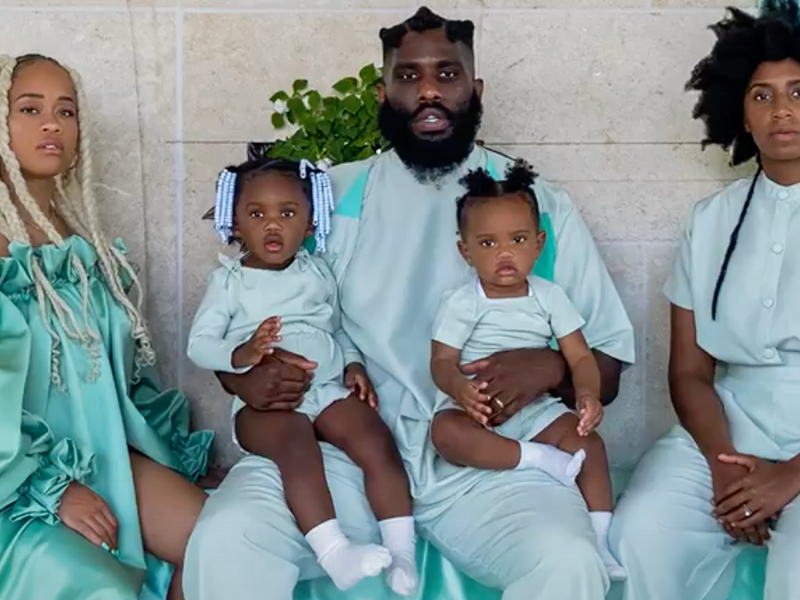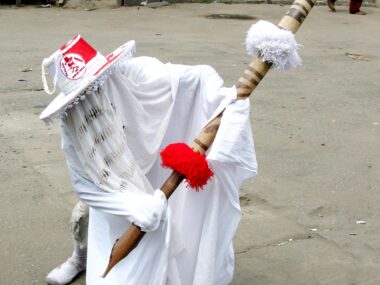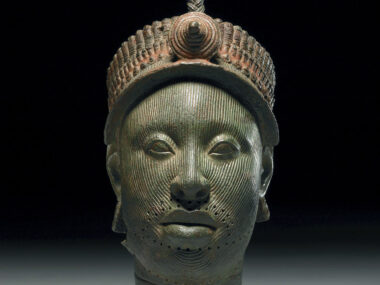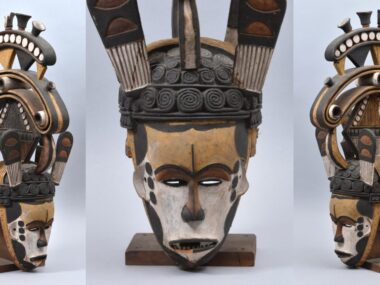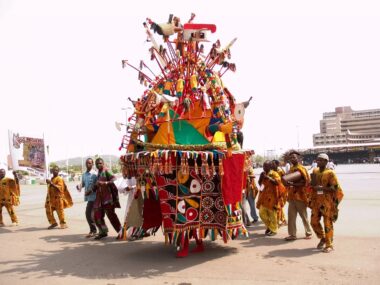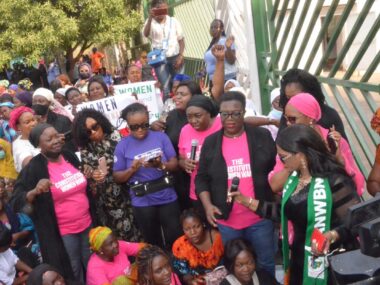Introduction
The family is the cornerstone of Nigerian society, playing a pivotal role in the social, economic, and cultural fabric of the nation. Nigerian families are typically extended, including not only parents and children but also grandparents, uncles, aunts, cousins, and even more distant relatives. This extended family structure is integral to the communal living and strong social networks that characterize Nigerian life. Understanding the role of family in Nigerian society involves exploring various aspects, including the influence of family values, the responsibilities of family members, the impact of modernization, and the ongoing relevance of traditional practices.

Family Values in Nigeria
- Respect for Elders: One of the most profound values in Nigerian culture is respect for elders. Elders are seen as the custodians of wisdom and tradition, and their opinions are highly valued in family and community decision-making processes. This respect extends to all aspects of life, from daily interactions to significant family events.
- Collective Responsibility: Nigerian families emphasize collective responsibility, where the success and well-being of one family member reflect on the entire family. This value fosters a sense of unity and mutual support, ensuring that no individual feels isolated or unsupported.
- Importance of Marriage: Marriage is a vital institution in Nigeria, viewed not just as a union between two individuals but as a merging of families. The process involves extensive rituals and ceremonies that reinforce family bonds and cultural heritage.
- Religious Values: Religion plays a crucial role in shaping family values. Whether Christian, Muslim, or practitioners of indigenous beliefs, Nigerian families often incorporate religious teachings into their daily lives and moral frameworks.
The Structure and Roles within Nigerian Families
- Extended Family System: Unlike the nuclear family model prevalent in many Western societies, the extended family system in Nigeria includes a wide network of relatives. This structure provides a robust support system where responsibilities and resources are shared.
- Patriarchal Influence: Traditionally, Nigerian families are patriarchal, with the male head of the family holding significant authority. However, this dynamic is evolving with increasing recognition of women’s contributions and rights.
- Role of Women: Women in Nigerian families often play dual roles, managing both household responsibilities and contributing to the family’s economic activities. Despite facing challenges, women are increasingly becoming influential figures in both the private and public spheres.
- Children and Youth: Children are considered blessings and the future of the family. Their upbringing involves not only their immediate parents but also other family members who contribute to their education and moral development.
Modernization and Its Impact on Nigerian Families
- Urbanization and Mobility: As more Nigerians move to urban areas in search of better opportunities, the traditional extended family structure faces challenges. Nuclear families are becoming more common, and geographic separation can weaken traditional family ties.
- Education and Employment: Higher education and employment opportunities are shifting traditional roles within families. Young Nigerians, especially women, are pursuing careers that require a balance between professional aspirations and family responsibilities.
- Technology and Communication: Advances in technology have facilitated better communication among family members, even when geographically dispersed. Social media and mobile phones help maintain family connections and support networks.
- Changing Gender Roles: Modernization has led to a gradual shift in gender roles, with more emphasis on gender equality. This shift is seen in the increasing participation of women in the workforce and leadership positions within the family and community.
Challenges Facing Nigerian Families
- Economic Pressures: Economic challenges, including unemployment and inflation, put significant strain on Nigerian families. Many families struggle to provide for their basic needs, affecting their ability to maintain traditional roles and responsibilities.
- Health Issues: Health concerns, including access to healthcare and the prevalence of diseases, impact family well-being. The burden of caring for sick family members often falls on the extended family network.
- Social Changes: Shifts in social norms and values, influenced by globalization and exposure to different cultures, are impacting traditional Nigerian family structures. Issues such as divorce and single parenthood, once stigmatized, are becoming more common.
- Cultural Erosion: The influence of Western culture and the erosion of traditional practices pose a threat to the preservation of Nigerian cultural values. Younger generations may find it challenging to balance modern influences with traditional expectations.
The Role of Elders in Nigerian Families
Elders hold a revered position in Nigerian families. They are often seen as the glue that binds the family together, offering guidance, wisdom, and a sense of continuity. Their role includes:
- Mediation and Conflict Resolution: Elders often mediate disputes within the family, ensuring harmony and continuity. Their decisions are respected and seen as final.
- Custodians of Culture: Elders are the primary transmitters of cultural practices and oral traditions. They educate younger generations about their heritage, instilling a sense of identity and pride.
- Support Systems: In many Nigerian families, elders provide emotional and sometimes financial support, acting as a safety net for younger family members during times of need.
- Decision Making: Major family decisions, including marriages, land disputes, and communal matters, often involve the input and approval of elders. Their experience and perceived impartiality make them trusted advisors.
The Importance of Marriage in Nigerian Families
Marriage in Nigerian society is not just a union of individuals but a significant cultural and social event that involves entire families. It reflects the values, traditions, and social norms of the community. Key aspects include:
- Pre-Marriage Negotiations: Before a marriage is formalized, families engage in negotiations that involve discussing dowries, family expectations, and ensuring compatibility. These negotiations are crucial in building relationships between the families.
- Ceremonial Practices: Nigerian marriages are marked by elaborate ceremonies that vary across different ethnic groups. These ceremonies include traditional rites, religious ceremonies, and often a combination of both, reflecting the couple’s cultural and religious backgrounds.
- Family Bonds: Marriages reinforce family bonds and extend the family’s social network. The union is seen as a way to strengthen alliances and ensure mutual support.
- Continuity and Legacy: Marriage is essential for the continuity of the family line. It is associated with procreation and the perpetuation of family names and legacies.
Religious Influence on Nigerian Families
Religion is deeply embedded in the fabric of Nigerian family life, influencing values, traditions, and daily practices. The major religions—Christianity, Islam, and traditional African religions—play pivotal roles:
- Moral Framework: Religious teachings provide the moral and ethical framework for family life. Concepts of honesty, respect, and duty are often derived from religious beliefs.
- Rituals and Celebrations: Religious festivals and rituals are significant family events that reinforce cultural identity and family unity. These include Christian holidays like Christmas and Easter, Islamic celebrations such as Eid al-Fitr and Eid al-Adha, and various traditional religious festivals.
- Education and Socialization: Religious institutions often play a key role in the education and socialization of children. Sunday schools, Quranic schools, and traditional religious teachings impart values and social norms.
- Community Support: Religious communities provide a support network for families, offering assistance during times of crisis and celebrating milestones such as births, marriages, and deaths.
Conclusion
The role of family in Nigerian society is multifaceted and deeply ingrained in the country’s cultural, social, and economic systems. Despite the challenges posed by modernization and globalization, the family remains a central institution that upholds traditional values and provides a support network for individuals. The evolving dynamics within Nigerian families reflect broader societal changes, yet the core values of respect, collective responsibility, and the importance of kinship continue to define Nigerian family life. Understanding these dynamics offers insights into the resilience and adaptability of Nigerian families in maintaining their cultural heritage while navigating contemporary challenges.
